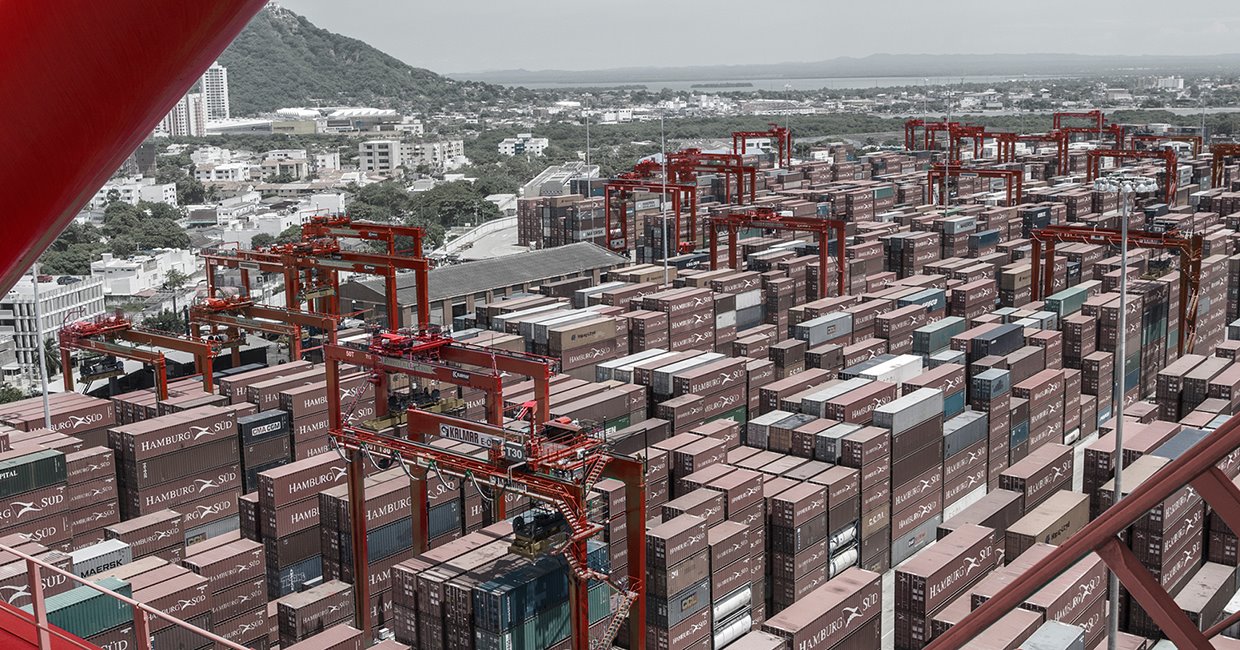
What if containers were intelligent?
The container is both one of the simplest and the most important of the world's innovations. It would be fair to say that it has been the chief enabler of growth in global production, international trade and the global economy. And even if containers are simple, the solutions moving them are just the opposite; they are complex, high technology systems.
Despite the complexity involved, system evolution, which looks set to continue into the near future, has enabled very low international shipment costs for consumer goods mainly because of high transportation volumes. However, let’s take a moment to look at another approach, the world of intelligent containers.
There are many technological innovations that could make containers more intelligent:
- The Internet of things. Sooner or later, all gadgets will be connected to the Internet. Why should containers be an exception?
- Smart radio – radio with wireless connectivity for information exchange, using technologies such as 4G cellular, RFID, WiFi, Bluetooth and Ultra Wide Band.
- Sensors measuring temperature, humidity, radiation, tilt, acceleration and orientation.
- For a smart radio and sensors, the required energy can be generated, for example from the vibration/movement of the container or surrounding radio signals.
What would happen if we tried to change the game by making containers more intelligent, in order to simplify cargo handling solutions or to further increase the functionality of cargo handling solutions? Nobody knows, but let’s try to imagine:
Containers could communicate with the goods transported, and cargo-handling equipment could communicate with the container and with terminal logistics and operations systems.
Ports and terminals, cargo vessels, road trucks and storage houses could be connected to logistics services through the Internet, thus providing businesses and consumers with real-time information.
What about the business case?
We know that engineers love to implement new systems, but what about the business case? I can see several elements that consumers and B2B companies would be willing to pay for.
- Consumers shopping for goods online from another continent could follow the product’s movements and estimated time of arrival in real time. Many consumers would be happy to pay an extra 1% or 50 cents to follow the shipment of a critical product.
- Global logistics service providers would be eager to create a more intelligent tracking system for their delivery service. This would be paid for by consumers. Part of the resulting revenue could be shared with the cargo hadling players enabling the improved service.
- Improved communication between shipping lines, hauliers and terminals would increase the overall cargo throughput and thus increase the revenue for each of them.
- Finding a lost container would become simpler and identification of the mismatch between EDI cargo reports and real cargo content would reduce the costs of cargo handling operations.
- Authorities would be pleased with sensors that automatically security-scan the goods transported in containers. There would be fewer security risks caused by hazardous material. New security services could be provided at a lower cost.
- Insurance companies would love an online tracking system based on which unauthorised access to a container, or a temperature rise in a reefer container, could be detected as it happens. It would be possible to know when and why the content began to thaw, or where the collision that damaged the container or its content occurred and whether the container was handled carelessly.
- The value chain would change. While existing companies should think about how to enhance and increase their business, potential new players are pondering how to enter the game. For example, someone might be interested in grasping the opportunity to act in real-time to fix problems before damage becomes irreversible.
An industry-wide initiative would be needed to get the ball rolling
Even if new, intelligent container solutions have many potential paying users, such a change would not happen easily and overnight.
An industry-wide initiative would be needed to get the ball rolling, while industry de-facto standardisation would be necessary to getting the job done. But will this be something that helps our industry to grow to a completely new level, or is it just wishful thinking? That’s something that all of you out there will have to decide.
Related articles
Further reading
Subscribe and receive updates in your email
Abonner på våre utgivelser

